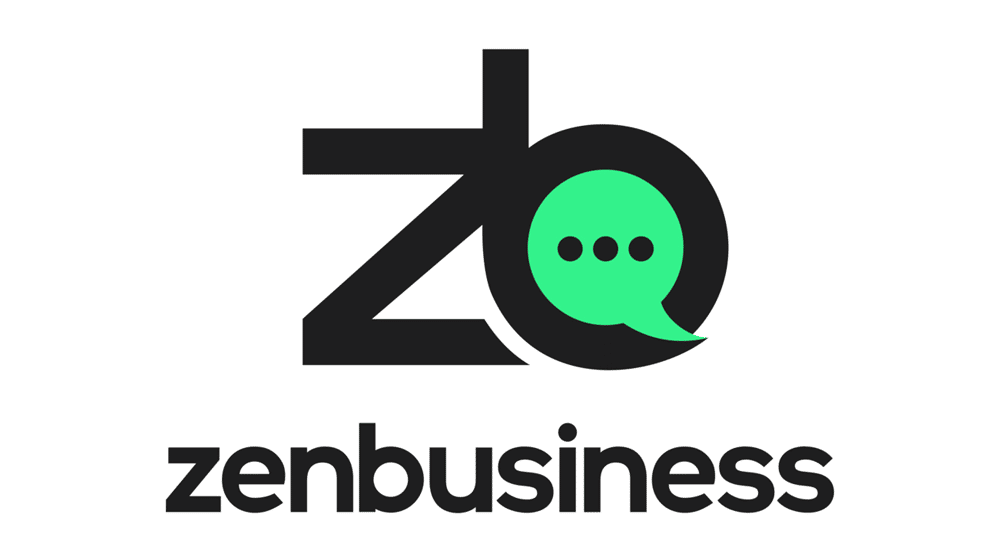How to Open A Daycare Business? (From Idea to Reality)
Form an LLC for Your Daycare Business from $0 + State Fees
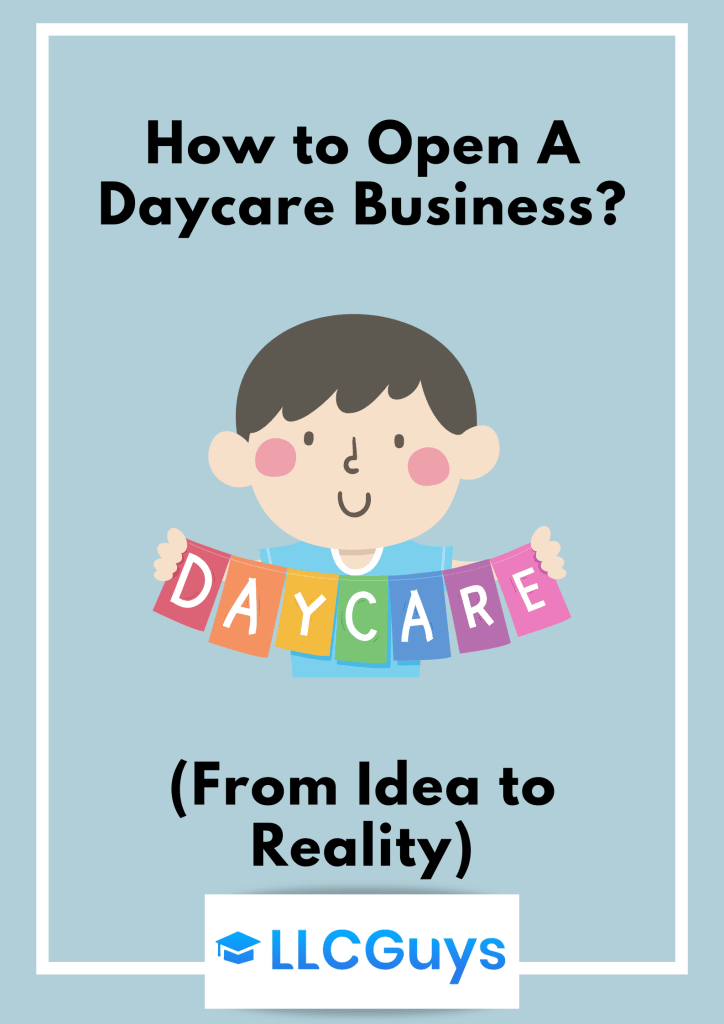
Starting a daycare business can be an incredibly rewarding and fulfilling venture, but there is a lot of work that has to go into it in order to make sure your business is up and running securely. This guide will provide the necessary steps to help you on this journey – starting with the conception of the idea all the way through its execution. For anyone looking to open a daycare business, this step-by-step guide will give you guidance on how to successfully construct a solid foundation for your business. Follow each step closely until you have realized your dream and created a secure and trusted daycare facility.
Ready to Start your own LLC? Let’s get going but if you don’t know how to start your own LLC by yourself take a look at our easy step-by-step guide on how to start an LLC.
If you want to skip the hassle of starting an LLC for your daycare business yourself, consider using professional help:
- Northwest Registered Agent ($39+state fees) (best support)
- ZenBusiness ($0+state fees) (best price)
- Form an LLC for Your Daycare Business from $0 + State Fees
- 7-Step Guide On How To Start Your Own Daycare Business
- 1. Working Out Your Daycare Business Plan
- 2. Forming your Daycare into a Legal Entity
- 3. Registering your Daycare for Taxes
- 4. Opening a Business Bank Account & Credit Card
- 5. Getting the Necessary Permits & Licenses for Your Daycare
- 6. Getting Insurance for Your Daycare Business
- 7. Defining Daycare Brand and Creating your Daycare Website
- Get Professional Help in Forming an LLC for Your Daycare Biz
- FAQs
7-Step Guide On How To Start Your Own Daycare Business
Here are the basic 7 steps that you can follow to make a successful place in child care Industry:
1. Working Out Your Daycare Business Plan
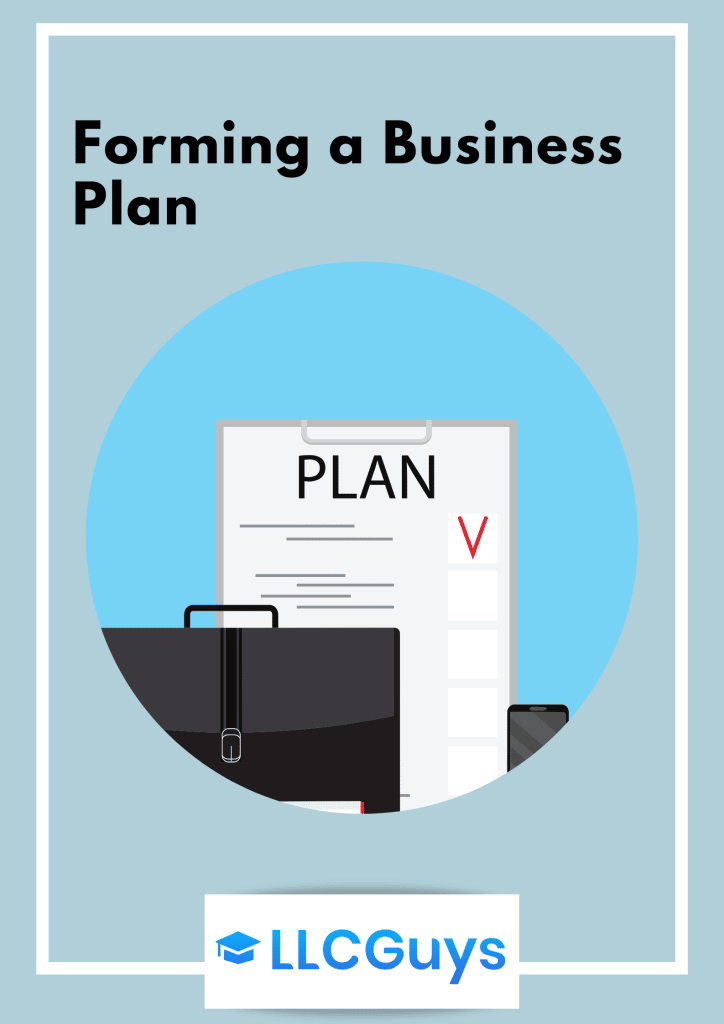
Creating a comprehensive plan is the key to becoming successful as an entrepreneur. It will assist you in formulating every detail of your business and uncovering hidden opportunities. So in order to start your business a proper daycare business plan must be formulated.
Cost of Opening a Daycare Center
If you’re looking for an affordable start-up business model, a home daycare may be the perfect solution. With this option, there’s no need to pay monthly rent – all you have to invest in are everyday items such as food, toys and educational materials. Plus, depending on your local laws and regulations, it allows you to look after up to four or five children at once!
You could face a one-time sum of up to $300 or $400 per kid for general supplies, and an extra expenditure of around $80-$100 every month on food. You may need special devices such as child safety locks and various other types of protection latches for your drawers and cupboards – but this should not exceed more than an additional cost of about $100 in total.
Additionally, it’s a great idea to consider investing in some localized advertising and have your own custom sign made for the front of your house.
The ultimate expense associated with launching your business is the legal charges for registering the company and developing contracts to secure it against any potential liability. The full startup costs of a home daycare could be between $1000 and $4000, depending on various factors.
Nevertheless, if you decide to start a daycare business for yourself, your expenses will be much higher. In addition to contemplating whether to buy or lease the property and how many people you need on board as staff members, accounting for what renovations must take place is also essential in order to accurately calculate your initial costs.
Ongoing Expenses
Running a small home daycare is quite economical, as basic items such as food and supplies might cost as little as $50 per child each month. In contrast, larger daycares have to factor in the costs of rent and utilities in addition to insurance depending on their capacity for children.
Staffing costs are anticipated to be the biggest outflow of money on a month-to-month basis as most states mandate that there must always be multiple adults present whenever the number of children surpasses an allotted amount.
Depending on experience, a daycare worker can earn up to an annual salary of $20,000 while daycare teachers make around $25,000 each year.
Target Market
Your ideal clients are busy parents with kids who require a reliable and trustworthy caregiver. Depending on your location, you may want to tailor your services to meet the specific needs of the local community. Ultimately, it will come down to how much you charge for care as well as the level of quality that you can provide which will determine what type of clientele is attracted to your business.
Customer Rates and Charges
The cost of daycare throughout the United States is quite steep, ranging anywhere from $350 to over an astounding amount of $1,000 per month per child for full-time care. Expenses differ by state with Massachusetts, New York, and Minnesota being particularly expensive while Mississippi, Kentucky, and Louisiana are comparatively more affordable.
Profits and Earnings
With a capacity of thirty children and six full-time staff members, you could earn up to $60,000 in profits annually. This is based on the monthly rate of $800 per child and an employee budget of roughly $180,000.
Your particular business model will alter your net profit accordingly; however, with this sufficient funding allocated for employees, it’s very likely that these numbers will only be exceeded!
Increasing Your Profits and Earnings
Unlike some businesses, childcare is not one of those industries that can cut corners to save costs. Parents are looking for the best quality care for their children, and your success as a business depends on how well you meet – or exceed – expectations while making sure kids have tons of fun!
To maximize your revenue, why not offer additional services for parents – think music classes, yoga or dance lessons? You could even hire a full-time cook who would prepare delicious and nutritious meals for the kids! That way you can incorporate the costs of ingredients and labor into your monthly fee per child. This will save time for busy parents while providing them with an excellent dining experience that their children are bound to love.
2. Forming your Daycare into a Legal Entity

Limited liability companies (LLCs) are an excellent option for small business owners looking for a way to formalize their Daycare Businesses. Forming an LLC can provide asset protection and limit the personal risks associated with starting a business, as well as help with certain startup costs.
It is an easy process that entails registering the business name, filing articles of organization, having basic paperwork ready, opening up a bank account and possibly obtaining licenses or permits from both the federal and state level depending on the type of venture. The benefits of forming an LLC far outweigh costs and are well worth taking part in for any small business owners interested in making their Daycare business a legal entity.
Securing your business with a legal entity such as an LLC or corporation shields you from any personal liability if your Daycare business is taken to court.
If you wish to save on costs, you can easily form an LLC yourself and pay only the minimal state-required fees. Alternatively, if you want professional assistance in establishing your business entity, it’s worth hiring one of the best LLC services that charge a nominal service fee.
3. Registering your Daycare for Taxes
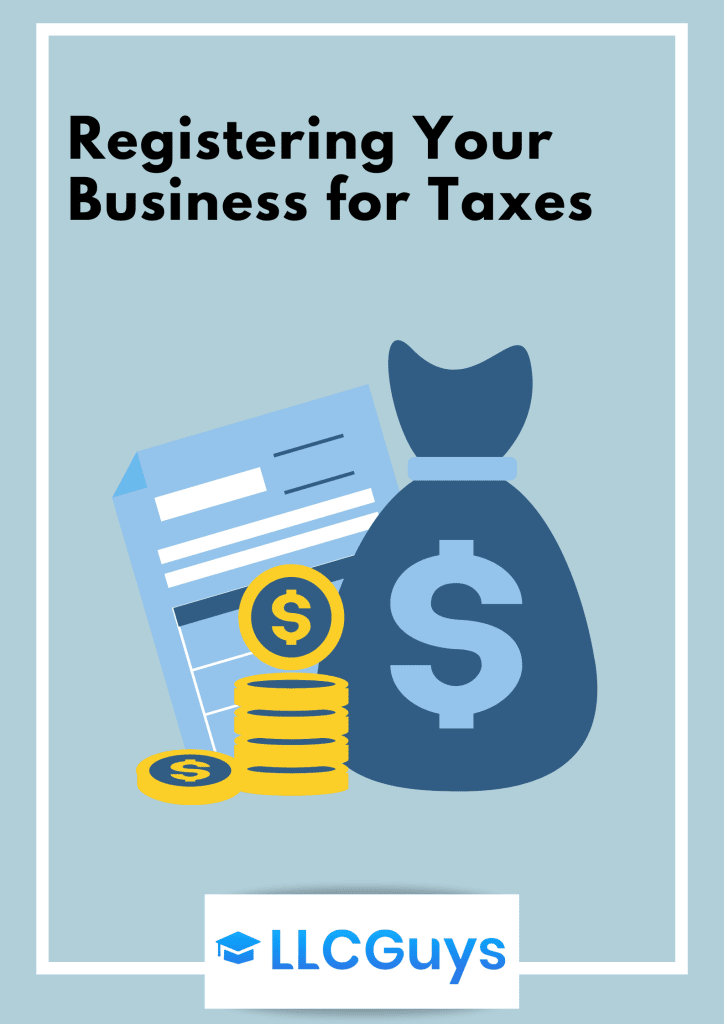
In order to open your business, you will need to register for various state and federal taxes. Fortunately, it is a straightforward process: all you have to do is apply for an EIN! It’s free of charge and takes only minutes. With this essential step taken care of, you are ready to launch your venture into the world!
Various Business Taxes
Depending on your chosen business structure, there might be different routes you can take to reduce the number of tax payments. If a Limited Liability Company (LLC) is what you decide upon, then being taxed as an S Corporation (S corp) could prove beneficial for your enterprise.
4. Opening a Business Bank Account & Credit Card
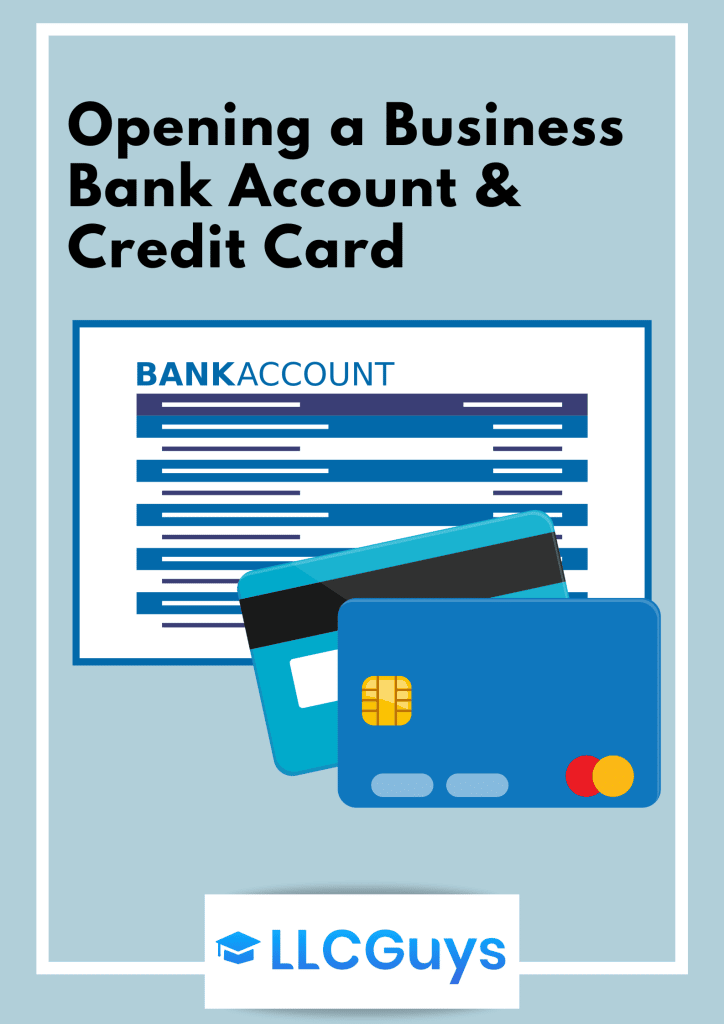
It is critical that you create separate banking and credit accounts for your business in order to protect your personal assets. Should legal action be taken against your company i.e. Child care center, if all of the build business credit and business expenses are pooled together it can lead to the piercing of the corporate veil – meaning any possessions owned by yourself such as a residence, vehicle or other valuables become vulnerable.
Furthermore, constructing business credit can assist you in obtaining a variety of financing options such as credit cards and other funding solutions under your company’s name (instead of yours), competitive interest rates, bigger lines of credit, etc.
Opening a Business Bank Account
- Having a business bank account isn’t just essential when applying for loans, but is also an advantageous move from other perspectives.
- Separating your personal assets from those of the company protects you in case of any legal issues or liabilities that may arise. In addition, it simplifies accounting and tax filing processes to ensure everything is done correctly and on time.
Get a Business Credit Card
- A business credit card is a perfect tool to distinguish personal and professional expenses, enabling you to maintain a streamlined record of your company’s financials.
- Additionally, it assists in building up your commercial credit history – something that can be invaluable if you desire to access additional capital further down the road.
5. Getting the Necessary Permits & Licenses for Your Daycare

Opening a daycare center is a challenging but rewarding venture. To ensure the long-term viability of your daycare business, it is important to carefully investigate and secure the necessary licenses and permits. Depending on your location, this may include licenses from the state or local government, as well as any industry-specific certifications for daycare centers and/or childcare businesses in general.
Additionally, depending on where you are located, you may need to obtain certificates or approvals from other organizations such as fire-safety inspectors or health inspectors. Securing the right licenses and permits is an essential part of launching a daycare business; without them, it may be impossible to secure funding or open your daycare doors.
Neglecting to obtain the necessary permits and licenses can be extremely costly, and may even lead to your business being forced to close its doors.
State & Local Business Licensing Requirements
Before you open a daycare center, make sure it is compliant with your state’s laws. Here you can find the necessary information and double-check that all regulations are followed. Additionally, if food will be served at the facility, you must pass an inspection from the local health department for safety purposes.
For more information about licenses and permits:
- Be sure to consult with the town, city or county clerk’s office for valuable insights.
- If you require assistance for your business, take advantage of the great resources in US Small Business Associations directory and connect with one of their local associations.
Service Agreement
Daycare businesses should make it mandatory for clients to sign a service agreement prior to initiating any new project. This agreement aids in clarifying the customer’s expectations and limits one’s exposure to legal disputes by specifying payment terms, performance levels anticipated, as well as intellectual property ownership rights.
Release of Liability and Medical Waiver
To shield childcare providers from potential legal action, informed consent should be obtained from parents in the case of any accidents or injuries that occur with their children under care.
However, it is vital to recognize your duties as a caretaker and when you could still be held legally responsible for injuries sustained by a child at your residence or childcare center.
Certificate of Occupancy
For commercial companies operating out of physical premises, obtaining a Certificate of Occupancy (CO) is a must. This CO confirms that all the relevant government guidelines, zoning regulations, and building codes have been met in full.
Leasing a Location
- It is the landlord’s duty to gain a valid CO for your daycare business. To ensure this requirement has been met, double-check that the necessary documents have been acquired or can be obtained before signing any leasing agreement.
- If renovations are planned prior to opening, it would be wise to include a clause in your contract stipulating that rent will not begin until all relevant paperwork is presented and approved. In some instances after renovation work, obtaining an updated CO may even become mandatory!
Buying or Building a Location
- You must secure a valid certificate of occupancy (CO) from an authorized government body. To guarantee that your daycare business fulfills all building codes and zoning regulations, you should carefully review them before applying for the CO.
6. Getting Insurance for Your Daycare Business

If you are a daycare business owner, investing in insurance can provide essential financial protection that could potentially save your child care business and even preserve its future. As child care centers are constantly adjusting to new rules and regulations – not to mention the rising cost of child care – having the right amount of insurance coverage is more important than ever before. It’s also a great way to attract parents who are looking for child-friendly solutions from reliable local businesses.
Just like permits and licenses, insurance is a critical part of any business’ success. Business Insurance safeguards your company’s financial health in the event of an occurrence that is under its coverage. Without it, you may find yourself exposed to unexpected losses which can be devastating for your operations – so make sure to keep it up-to-date!
Many daycare business owners may not know how to get started on getting an appropriate level of coverage for their business and so researching options, asking for advice from other childcare providers, and speaking with a qualified insurance agent can all be incredibly beneficial steps toward setting up your child care business to have the financial security it needs to thrive.
7. Defining Daycare Brand and Creating your Daycare Website

Your brand is the face of your business – it’s the representation of who you are and what you bring to the table. A strong, impactful brand will make your company distinctly recognizable from others in your industry and further set you up for success.
Marketing and Advertisement
Depending on the size of your daycare, your marketing approach will differ. If you are just starting out and plan to provide care for three or four children from home, it’s likely that there is no need to invest in a web development team or billboard advertisement created by a professional graphic designer.
As your business grows and you choose to lease or purchase a physical space that can hold more than 12 kids, creating an online presence is essential. That way, potential customers – parents looking for childcare centers – will be able to discover your center on the web, understand what it stands for in terms of core values and activities available for children as well as learn about who comprises part of your team.
Designing your website to be visually appealing and user-friendly will give parents the confidence they need in bringing their little ones to you. Additionally, adding reviews from thankful clients who have seen their children flourish under your care can further demonstrate how trustworthy you are as a childcare provider.
Create a Daycare Business Website
As a childcare business, you are making a wise move in creating a website for your Daycare. By having an online presence, parents will have access to all the information they need about early childhood education and child care services that your childcare business provides.
Additionally, by having a website, prospective parents can get an understanding of what sets your childcare industry apart from the competition and how your childcare center can help their children in early childhood development. Investing in a well-designed website is proven to showcase your business’s dedication to excellence as well as draw in more customers who are shopping around for quality childcare services. Having an online portal is essential for any successful childcare business!
Get Professional Help in Forming an LLC for Your Daycare Biz
It can be difficult and time-consuming to form an LLC all by yourself.
That’s why we decided to give you a few of the best options for professional services that can help you start an LLC in no time & with 0 effort!
#1 – Create an LLC Using Northwest Registered Agent
Northwest has vast experience in creating LLCs and Corporations. They by far have the best support and client satisfaction rate. We’ve used and tested them ourselves and can guarantee that they’ll do an exceptional job for you.
You can read our full & extensive Northwest review here.
#2 – ZenBusiness will start a daycare LLC for you
ZenBusiness is one of our top-rated LLC services as well. They have a super value-to-price ratio. And it’s perfect for those who are looking for the cheapest option to form their LLCs. When we tested their service — they’ve done a great job, so we can honestly recommend them.
To know more about them — read our full ZenBusiness review here.
FAQs
What happens during a typical day at a daycare?
During a typical day at daycare, children ages 3-5 engage in activities that include circle time, story time, block building, free play, outdoor games, and art projects. At the start of their day, teachers greet each child with a hug and facilitate group discussions to get the energy moving. From there, activities vary from interesting snacks and songs to painting, fingerplays, science experiments, and more.
Throughout it all, teachers ensure children remain engaged for hours on end by providing individual attention when necessary and helping children move between activities with ease. Each day also includes plenty of time for lunch and naps – an ideal balance of educational engagement and restful down-time.
What is the growth potential for a daycare?
For parents, finding the perfect childcare is a priority. As an aspiring provider, it’s your job to ensure that every parent who chooses you feels at ease knowing their child will be in safe hands. To make sure that children have both a secure and enlightening experience with you, having creativity, strong communication skills and artistry are essential qualities for creating an enjoyable yet nurturing environment.
What are some skills and experiences that will help you build a successful daycare?
If you are considering running a day care business, the growth potential of your organization is reliant on local population demographics. It’s essential to investigate the age composition in your community; how many people between 20-29 live near you? How prevalent are long-term couples or families? On average women have their first child around 26 years old, though this changes due to individual situations – consequently catering for childcare will always be a requirement!
Is owning a daycare profitable?
According to IBISWorld, daycare business profits average about 15%. These are more than the averages of the rest of the industry! If you plan to build your own day care business then you will be entering a lucrative and highly-demanded market.
How much money should I save and invest in a daycare business?
What’s the price of starting Daycare? According to the Small Business Web Site Biz Fluence.org, the typical startup costs of daycare centers are between $10,000 and $50,000 per month. It may vary greatly depending upon the type of home daycare that you are opening or leasing.





